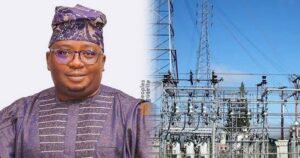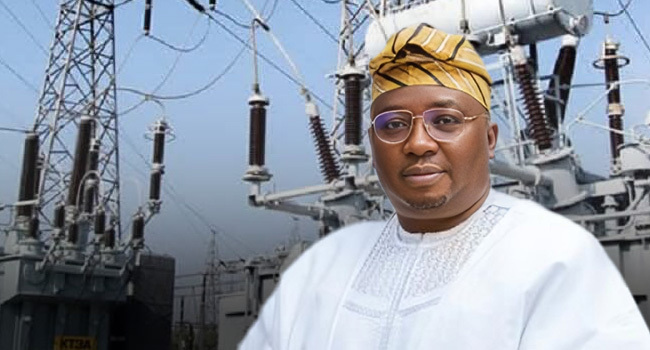In a significant step towards transforming Nigeria’s struggling electricity sector, the Minister of Power, Adebayo Adelabu, has received a draft copy of the National Integrated Electricity Policy and Strategic Implementation Plan. This comprehensive document, designed by a coalition of industry experts and key stakeholders, aims to drive the necessary reforms to address the longstanding challenges in the power sector. The presentation of this draft took place on Wednesday in Abuja, and it marks a crucial milestone in the journey towards reliable and sustainable power supply in Nigeria.
Strategic Plan Aims to Address Sector Challenges
The National Integrated Electricity Policy and Strategic Implementation Plan is a product of extensive consultations and input from various industry experts and stakeholders. The plan outlines interventions across the entire power value chain, including generation, transmission, distribution, and even off-grid segments. By focusing on all aspects of the power sector, the document seeks to provide a holistic approach to resolving the multifaceted issues that have plagued the industry for decades.
Minister Adelabu, while receiving the draft, emphasized its importance and potential impact on the nation’s power landscape. He noted that the policy document is expected to be presented to the Federal Executive Council (FEC) within the next six weeks, underscoring the urgency and priority the government places on reforming the power sector. This timeline reflects the government’s commitment to expedite the process and begin implementing the necessary changes as soon as possible.
Focus on Equitable Access and Renewable Energy Integration
One of the key objectives of the new policy is to ensure equitable access to electricity for all Nigerians, especially those in underserved and rural communities. Minister Adelabu highlighted that the government is keen on creating an enabling environment that not only attracts investment but also promotes the integration of renewable energy sources. By diversifying the energy mix and incorporating more renewable options, the government aims to reduce dependence on gas-powered electricity and improve the overall sustainability of the power sector.
 Current Power Generation Capacity and Future Targets
Current Power Generation Capacity and Future Targets
The power sector in Nigeria has long been riddled with issues that have hampered electricity generation and, by extension, the nation’s industrialisation efforts. Currently, Nigeria’s power generation capacity hovers around 4,000 megawatts, which is grossly inadequate for a country of over 200 million people. Minister Adelabu revealed that the government is actively working to ramp up power generation capacity to 6,000 megawatts within the next six months. This ambitious target underscores the government’s resolve to address the power shortages that have stunted economic growth and development.
The current power generation mix in Nigeria consists of approximately 25% from hydroelectric power sources, while the remaining 75% is derived from gas plants. This heavy reliance on gas for electricity generation has been a point of concern, especially given the global shift towards cleaner and more sustainable energy sources. The integration of renewable energy, as outlined in the new policy, is expected to address this imbalance and contribute to a more resilient and diversified energy sector.
Recent Electricity Tariff Increase Sparks Public Outcry
In a related development, the Nigerian Electricity Regulatory Commission (NERC) recently announced an increase in electricity tariffs for customers who enjoy 20 hours of power supply daily, categorised under the Band A classification. This adjustment, effective from April 3, 2024, saw tariffs jump from N66 per kilowatt-hour to N225 per kilowatt-hour. The significant hike has been met with widespread criticism from the public, with many Nigerians expressing frustration over the timing and magnitude of the increase, especially in light of the prevailing economic hardships.
The tariff hike has sparked debates about the affordability of electricity and the need for regulatory measures that balance the interests of consumers with those of the power companies. While the government argues that the increase is necessary to cover the costs of generating and distributing power, many Nigerians believe that the burden of these costs should not be passed on to consumers, particularly when the quality and consistency of power supply remain suboptimal.
Conclusion
The unveiling of the National Integrated Electricity Policy and Strategic Implementation Plan represents a pivotal moment in the efforts to overhaul Nigeria’s electricity sector. With its focus on equitable access, renewable energy integration, and creating an investor-friendly environment, the policy has the potential to bring about the much-needed transformation in the power sector. As the government moves forward with the implementation of this policy, all eyes will be on the Federal Executive Council and the Ministry of Power to see how these plans translate into tangible improvements for Nigerians across the country. The journey to stable and reliable electricity may be long, but with the right policies and commitments, Nigeria can make significant strides towards achieving its power sector goals.




